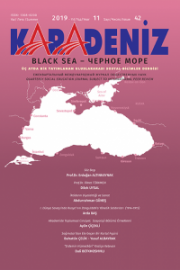İLMİNSKİY’NİN EĞİTİM SİSTEMİ ÜZERİNDEN RUS MİLLİYETÇİLİĞİNİN KISA BİR OKUMASI
A SHORT READING OF RUSSIAN NATIONALISM VIA ILMINSKY’S EDUCATION SYSTEM
Author(s): Metehan KARAKURT, Kutay ÜSTÜNSubject(s): State/Government and Education, Evaluation research, Nationalism Studies, Sociology of Politics
Published by: Kültür Ajans Tanıtım ve Organizasyon
Keywords: Russian Nationalism; Russification; Ilminsky; Caucasia; Nationalism;
Summary/Abstract: The phenomenon of nationalism, which emerged as a result of modernization and industrialization in Western Europe, soon began to threaten the multi-lingual multinational feudal state structure of the Tsarist administration. Tsarist Russia, which wanted to preserve its borders and the existing state structure that expanded to the Caucasus and Turkestan, followed the assimilation and missionary policies towards the middle of the 19th century to Russify and Christianize non-Russian (Nerusky) and non-Christian (Inoverets) ethnic groups. At the beginning of this cultural nationalist policy, which was carried out by Nikolai Ivanovich Ilminsky, who worked on theology and Turkish dialects in Kazan Spiritual Academy, in order to have Russian as a language of education and communication within the Tsarist borders. The education method of Ilminsky, supported by Tsar Alexander II, enabled the Russian language and Christianity to become widespread and more systematically applied as a reflection of the rising Russian nationalism. In line with this training method, it was aimed to carry out missionary activities, to teach Russian and Cyrillic alphabet alongside local languages, to divide these languages with accents and dialects and to make Russian a common language within Tsarist borders.
Journal: Karadeniz Uluslararası Bilimsel Dergi
- Issue Year: 2019
- Issue No: 42
- Page Range: 177-187
- Page Count: 11
- Language: Turkish

